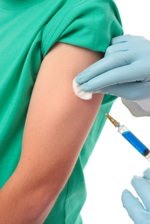Medical Screening Tests and Procedures to Prevent Disease

Medical screening for disease prevention is an extremely important function of primary care physicians and one which we take very seriously. Based on the guidelines written by the American College of Physicians and by the U.S. Preventive Services Task Force (USPSTF) and by our own experiences, we recommend the following medical screening tests for our patients:
-- A yearly comprehensive medical evaluation for all adults over 40, including history and physical exam, blood and urine studies and EKG. A chest xray should be included as well if there is any history of smoking.
--Yearly prostate screening with rectal exam and PSA for males over 40.
--Yearly fecal occult blood testing for all adults over 40.
--Colonoscopy every 10 years for all adults over 45. Begin at age 35 if there is a family history in the mother or father. It should be repeated in 3-5 years if you've had polyps.
--Mammogram every 2 years for women between 40 and 50 and yearly thereafter.
--Pap smears every 1-2 years for women who are sexually active and still have a cervix. They are no longer necessary if your cervix and uterus have been removed.
--Bone density every 2 years for postmenopausal women.
--Lipid profile (cholesterol and triglycerides) every 5 years if normal, every year if abnormal or borderline, and every 6 months if you are taking lipid-lowering medication.
______________________________________

Adult Immunizations are also important in disease prevention and are recommended as follows:
--Tetanus/diptheria booster every 10 years for anyone over 18.
--HPV - 3 doses for females 19-26.
--Varicella vaccine - 2 doses - for anyone over 18 if no prior infection or vaccination. (But NOT in pregnancy or in patients who are immunocompromised)
--Zoster vaccine - one dose for anyone over 60 with no prior infection or vaccine. (But NOT in pregnancy or in patients who are immunocompromised)
--Measles, Mumps, Rubella (MMR) - 1-2 doses for ages 19-49; one dose thereafter if there are any risk factors. (But NOT in pregnancy or in patients who are immunocompromised)
--Influenza - one dose yearly for those over 50, also for younger patients who have risk factors.
--Pneumococcal vaccine (pneumonia) - one dose for those over 65, then every 5 years thereafter for those with respiratory problems or prior episodes of pneumonia; 1 or 2 doses for younger patients with risk factors.
--Hepatitis A - only for those with risk factors - 2 doses.
--Hepatitis B - 3 doses for those with risk factors (people working in dentistry or health care)
--Meningococcal - one or more doses for those with risk factors (living in military barracks or college dormitories)
Reference: A detailed copy of the recommended adult immunization schedule can be downloaded here.
From "Medical Screening" to "HomePage"








